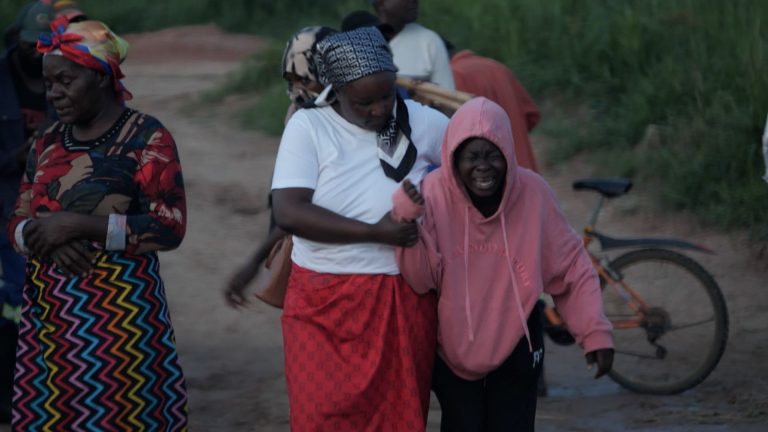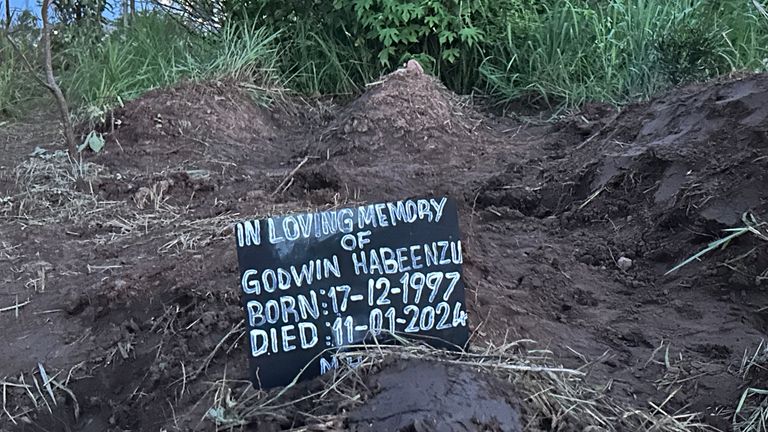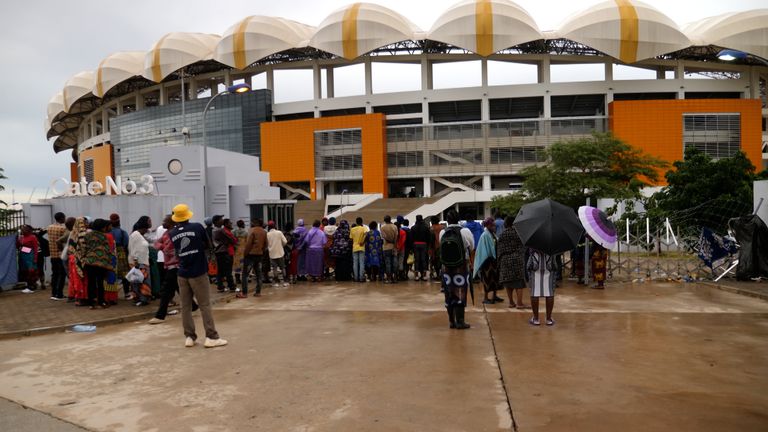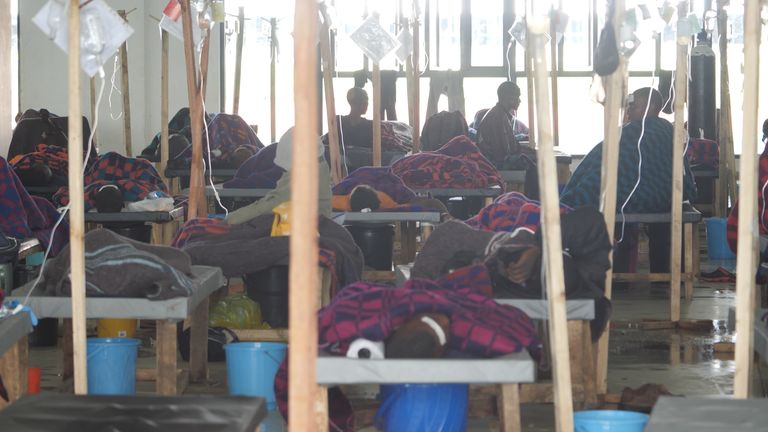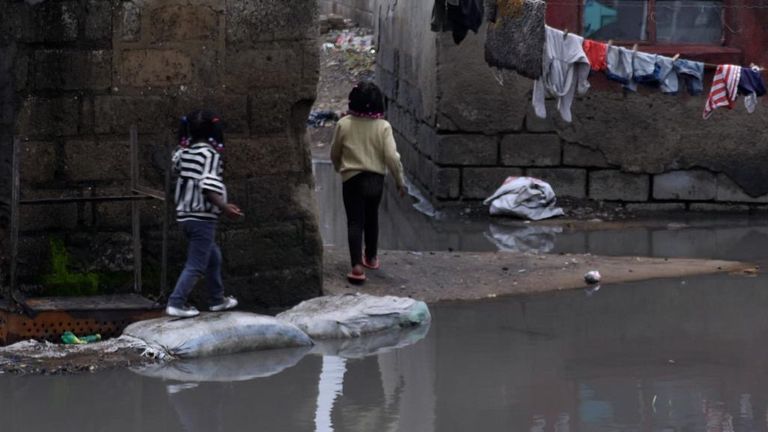Zambia is facing one of the worst cholera outbreaks in recent years with nearly 10,000 active cases recorded.
Climate change has brought heavy rains that have contaminated drinking water in poor and densely populated urban areas, mostly in the capital, Lusaka.
Health workers are scrambling to contain a crisis that is likely the worst the country has seen since the disease first broke out in 1977.
The sound of crying cuts through the humid air as a uniformed worker hurriedly digs up the soil and tosses it aside. Among the clumps of tall grass is a burial site with individual spaces clustered and shallow – only marginally better than the mass grave.
Cries of grief come from 16-year-old Catherine. Her grandmother Tamara Longo's coffin lies in a new hill in the soft earth. Tamara was the matriarch of the family at the age of 84, and was Catherine's guardian and under her care.
She died of cholera in ZambiaNational Champions Stadium on January 10 and the family was informed two days later.
Her other great grandson Nabel Nyirongo stands at her grave. It was marked with tree branches so that he and his cousins could find it among many other new graves when they returned to mark. They will not be allowed to hold a funeral.
Above the sadness there is clear disappointment.
“There is nothing we can do,” says Nabel, 50. “At least they should respect the bodies. I think they don’t respect us.”
Beyond the graves, the National Champions Stadium can be seen in the distance. Nabel had been waiting there for several days with his worried relatives. He was in the front gardens of the stadium in shock when we first met him.
“They told us she was fine and we were taken to the waiting room after that. Now they are telling me she died. What is this? We are not happy with what is happening here,” he told us as he waited for his wife to arrive. To place the grandmother's body in the coffin he bought.
Other concerned relatives gather behind the stadium's metal barriers awaiting any news. The roll call is read periodically to reassure them that their infected loved ones are still alive.
A man seething with anger sits on the edge of a dried-up storm drain. He says his nephew's name hasn't been mentioned for days and all he wants to know is whether he's alive or dead.
Next to him are 59-year-old Hamlet and his daughter Agnes. She says that her elderly father made five trips from outside the city to check on her brother, his son.
They said that on Wednesday they were taken to see him and found him in good health. The next day, they went to see him but did not find him in any of the wards.
“We would feel better if they told us whether he was alive or dead,” Agnes says. Obviously the lack of closure is very frustrating.
Health Minister Sylvia Masebo is working on capacity and communication issues as the stadium increasingly becomes a major treatment centre.
“When we started the first 48 hours, it was a challenge. But now we've settled down and we have people specifically hired to deal with just this issue, making sure they're looking at family cases from six to midnight.”
We speak to the minister in the children's ward where infants as young as five months old are being treated for cholera.
There are buckets and IV drips next to each bed. The floor is wet with bleach. Painful, high-pitched screams emanate from the corners of the room.
Many of these children come from the highly affected area of Kanyama and neighboring areas.
The slums are full of flooded streets, shallow wells, pit latrines and open-air food stalls.
Read more:
The 10 most under-reported humanitarian crises in Africa for the second year in a row
Mothers and guardians were allowed to sit next to their beds on the orders of Health Minister Masebo.
The ban on funerals and family burials remained in place. Her ministry will draw up more emergency rules that will impose health restrictions on public places such as bars and outdoor food markets.
I asked her how she expected Zambians to respond to these measures.
“I think what's important for us is to do what needs to be done that we haven't done as a country [for] Many decades, mainly because sometimes we politicians are afraid to do what needs to be done, which is right because you feel you will be unpopular.

